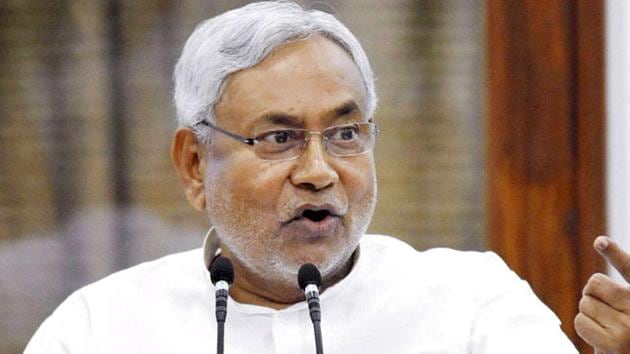Lok Sabha election results 2019: With 100% strike rate, Nitish Kumar seals position as leader No.1 in Bihar
Counting trends suggest Kumar’s party has secured all 17 Lok Sabha seats it fielded its candidates on, reiterating the JD(U)’s track record of successful poll alliances.
In 2017, when Nitish Kumar decided to part ways with the grand alliance in Bihar, he perhaps read the writing on the wall for what was to come for his Janata Dal (United) by the time the general elections were to be held two years later.

Counting trends suggest Kumar’s party has secured all 17 Lok Sabha seats it fielded its candidates on, reiterating the JD(U)’s track record of successful poll alliances. In 2015, the JD(U) reaped rich dividends when it contested the assembly elections in a grand alliance of Lalu Yadav’s Rashtriya Janata Dal (RJD) and the Congress party — the party won 70 out of 100 seats it contested. Cut to 2019 and if the JD(U) wins the 17 out of 40 seats it has contested, that translates to at least 102 assembly seats.
Kumar, who contested the 2019 Lok Sabha polls in an alliance with the Bharatiya Janata Party (BJP) after breaking off from the grand alliance, has now emerged more powerful than before, and his performance as the chief minister of Bihar has not only been accepted by the people at large but also helped him keep his carefully cultivated electoral constituencies of women, EBCs, Dalits, and even minorities intact.
In the 2014 general elections, the JD(U) contested solo and won only two seats, while the BJP, in an alliance with the Rashtriya Lok Samta Party (RLSP) and the Lok Janshakti Party (LJP), won 31 out of 40 seats in the state.
Equations changed in 2019 with the JD(U) entering the poll fray with the BJP and the LJP under the National Democratic Alliance (NDA) banner. Trends so far indicate that in Bihar, electors overwhelmingly stood behind the Nitish Kumar-Prime Minister Narendra Modi combine in the hope that the state is on a faster growth trajectory.
The alliance proved lethal for the Opposition.
The BJP brought in the wide support of upper castes while the JD(U) complemented the alliance with deep-rooted support of the OBC, EBC, minority and the women voters. The NDA also successfully managed to wean away a chunk of the Yadav and Muslim voters who were the traditional vote bank of the opposition parties.
Click here for Lok Sabha Election Results LIVE
The vote share of the BJP, JD(U) and the LJP during the 2014 Lok Sabha polls was 29.86 %, 16.04 % and 6.40%, respectively, which takes the total to a brute 52.30%. Cut to 2019 and their coming together has proved to be a multiplier effect in improving the NDA’s seats.
All three parties realised this potential and sewed the coalition in a relatively hassle-free manner — even though the BJP, the lead party in the coalition, agreed to let go of five seats to accommodate the JD(U) as an equal partner with both contesting 17 seats. The LJP, too, which is known to be a hard bargainer, agreed to part with one seat out of the seven it had contested in 2014.
With barely a year to go for assembly polls in Bihar, the JD(U) with a 100% strike rate will sit on the negotiating table with a lot of confidence and command. Kumar will undoubtedly remain the chief ministerial candidate and the JD(U) is likely to retain its image of the elder brother in the state.
Kumar also deserved a pat on the back for the NDA’s performance as he relentlessly criss-crossed the state in the sweltering heat to address the highest number of election rallies — 172 — where he wooed electors with his development initiatives. Displaying the alliance bonhomie, Nitish Kumar also spoke highly of Modi’s performance as Prime Minister.
“While Narendra Modi’s nationalism pitch has superseded all other issues, in Bihar, people have a favourable disposition towards Nitish Kumar’s commitment for development and these two factors have struck an emotional connect. This has resulted in decimating the Opposition,” said DM Diwakar, former director, AN Sinha Institute for Social Studies, Patna.






